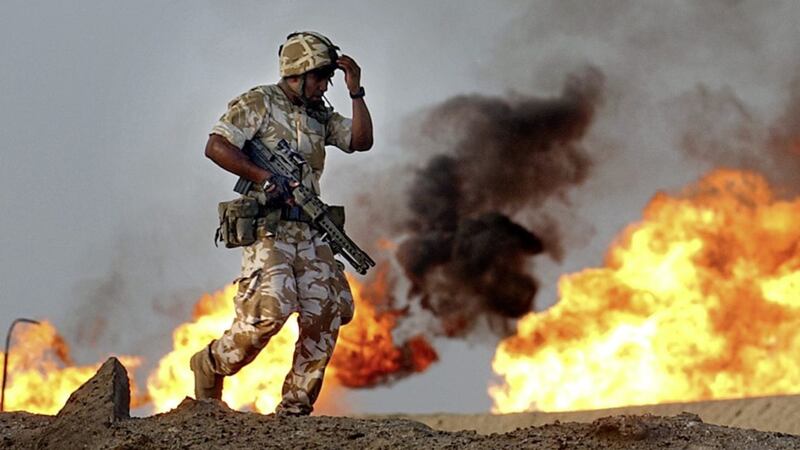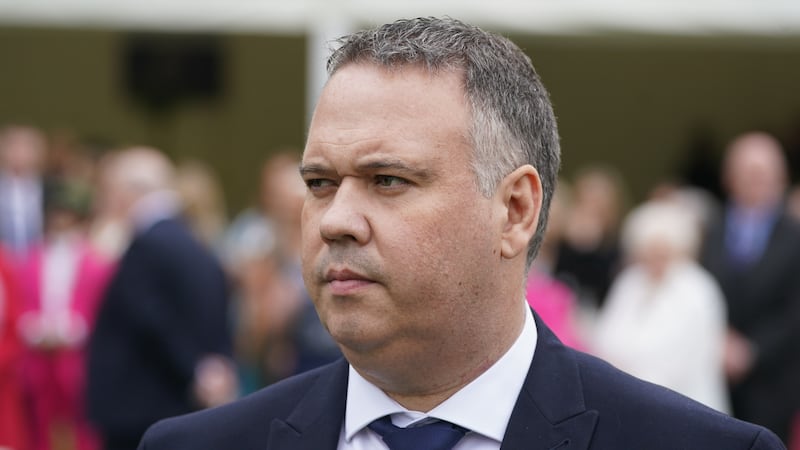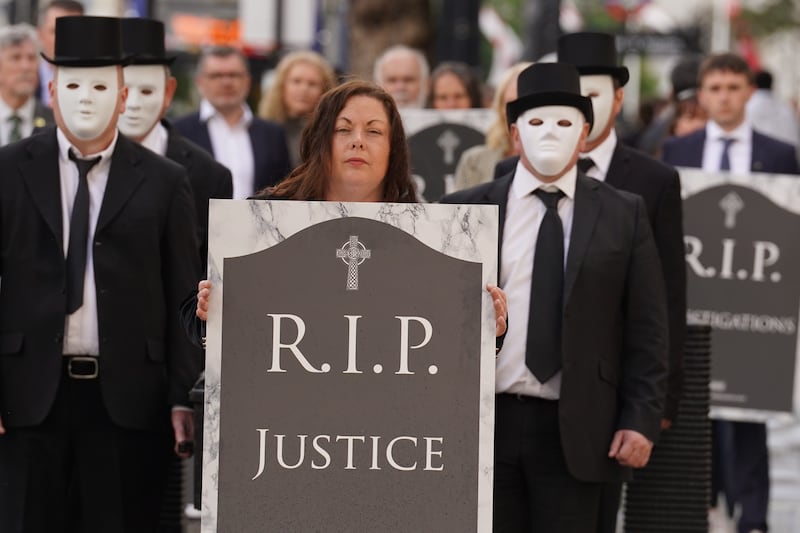British Prime Minister Theresa May's DUP allies have urged the government to introduce UK-wide laws protecting soldiers in multiple wars from prosecution.
Lagan Valley MP Sir Jeffrey Donaldson said a statute of limitations for the British armed forces should also cover conflicts like Iraq and Afghanistan.
He warned that confining it to Northern Ireland could lead to IRA pressure for an amnesty.
Senior members of the Cabinet, including Defence Secretary Gavin Williamson, had expressed concerns that military veterans might not have enough protection under a proposed system for addressing historic wrongdoing in Northern Ireland.
Sir Jeffrey said: "A statute of limitations is a much broader issue. We believe it should be dealt with separately from the legacy proposals.
"If you introduce a statute of limitations which relates only to Northern Ireland and our troubled past, organisations like the IRA would then press for an amnesty for their members and we believe it would be completely unacceptable to equate members of the armed forces with members of an illegal terrorist organisation."
Under a confidence and supply arrangement, the DUP's 10 MPs are supporting the minority Conservative Government on key votes like Brexit.
Sir Jeffrey added: "We don't believe it would be appropriate to try and equate terrorists with members of the armed forces.
"That is why we don't believe that the statute should be linked to the legacy proposals, which should focus on investigation into the 90% of violence carried out by terrorists."
He said: "The issues related to a statute of limitations for the armed forces should be dealt with on a national basis UK-wide and should cover conflicts such as Iraq and Afghanistan."
The 1998 Good Friday Agreement, which largely ended decades of violence in which thousands were killed, provided for the early release of republican and loyalist prisoners within two years.
Some senior MPs had urged a statute of limitation which would prevent anyone from facing trial for offences that happened during the conflict, including former servicemen and paramilitaries.
Victims' representatives, Sinn Féin, the DUP and the Dublin Government voiced concerns.
Mechanisms to deal with the conflict legacy were agreed in the 2014 Stormont House Agreement; an amnesty was not among them.
The proposals, including a new independent investigatory unit, a truth recovery body and an oral archive, had been on ice due to a small number of outstanding Stormont political disputes.
Northern Ireland Secretary Karen Bradley had been expected to publish proposals soon.








